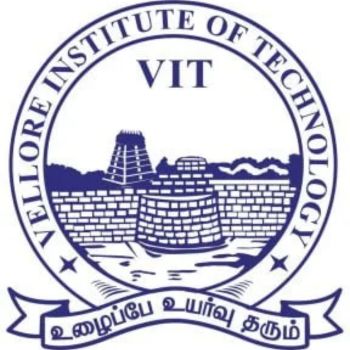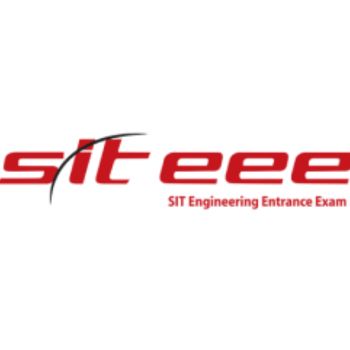BSc Applied Chemistry or Bachelor of Science in Applied Chemistry is a 3-year UG course that equips learners with a solid understanding of chemical concepts, systems, and its practical applications across a number of sectors, allowing them to perform analytical processes and handle a variety of technical instruments with ease.
The average BSc Applied Chemistry fee ranges from INR 60,000 to INR 1,30,000, depending on the college affiliation and whether it is a private or a public university. Currently, the program is offered only by a small number of universities in India, with Sardar Patel University and ITM SLS Baroda University being the most prominent ones.
Typically, the degree duration is 3 years, however, some universities altered their BSc Applied Chemistry curriculum in accordance with the New Education Policy 2020 and now offer a 4-year term of study. The eligibility criteria are usually set on a merit basis with only a few universities accepting CUET, MHT CET, and IISER as entrance exams to determine the same.
Analytical Chemists, Quality Control Chemists, Toxicologists, Chemical Technicians, Research Associates and Forensic Scientists are among the most sought-after BSc Applied Chemistry jobs. Additionally, starting salaries for these positions can range from INR 2.5 to 4.5 LPA, while experienced positions can get paid up to INR 10 to 14 LPA.
Table of Contents
- BSc Applied Chemistry Highlights Table
- What is BSc Applied Chemistry?
- Why Study BSc Applied Chemistry?
- Who should study BSc Applied Chemistry?
- BSc Applied Chemistry Eligibility Criteria
- BSc Applied Chemistry Entrance Exams 2025
- BSc Applied Chemistry Colleges in India
- BSc Applied Chemistry Admission Process 2025
- BSc Applied Chemistry Syllabus
- BSc Applied Chemistry Job Opportunities in India
- BSc Applied Chemistry FAQs
BSc Applied Chemistry Highlights Table
Listed below are some of the key highlights of BSc Applied Chemistry course:
What is BSc Applied Chemistry?
The focus of the 3-4 year BSc Applied Chemistry program is on the real-world practical application of chemistry and related fields across various sectors and industries. Other science-related subjects, such as physics, engineering, medicine, organic and inorganic chemistry, etc., are also covered under the course curriculum providing a comprehensive learning opportunity.
Following the completion of studies, BSc Applied Chemistry graduates are able to acquire expertise in Nuclear Chemistry, Functional Organic and Inorganic Material Science and Technology, Medicines, Cosmetics, and even Chemical Systems. As a result, they are capable of carrying out standard synthesis and analytical processes using technical instruments, address production issues, identify and analyze pharmaceutical items and natural resources and critically assess and assist chemical developments.
Why Study BSc Applied Chemistry?
Being a highly practical field of study that includes interdisciplinary subjects, BSc Applied Chemistry is easily one of the highly regarded degree courses, however, with it still being a niche specialization of study, students are unable to fully comprehend its scope and benefits. Therefore, the key features of pursuing this course include:
- Interdisciplinary Learning: Because of its name, BSc Applied Chemistry is frequently regarded as a specialized course that only discusses chemistry and its practical applications, however, a variety of other disciplines such as Biology, Physics, Medicine, Engineering, and Chemical Inventions are also taught under the course curriculum, making it an extremely interdisciplinary field of study.
- Employment Opportunities across multiple industries: BSc Applied Chemistry graduates can easily get jobs across multiple industries, they can work in the teaching industry as a chemistry professor, work with reputed government organizations like DRDO as a chemical scientist or research associate, and even get work with the FBI as forensic experts.
- Research Opportunities: The course curriculum provides extensive research opportunities, and students interested in conducting such research can have their papers published in reputable journals and periodicals.
- Multifaceted Expertise: BSc Applied Chemistry graduates have a highly versatile skill set; while they possess an in-depth understanding of chemistry and its principles, they are also easily able to identify and analyze natural resources for chemical and pharmaceutical invention, manage laboratory equipment, and even assist in nuclear chemistry tool innovation.
Who should study BSc Applied Chemistry?
Although BSc Applied Chemistry is an extremely technical and analytical subject that is widely sought after by students with a science background, it is not for everyone, rather, it demands an individual who genuinely has a passion for chemistry and chemical innovations. Thus, BSc Applied Chemistry is an ideal degree for those who:
- Are Chemistry enthusiasts and also interested in studying Physics and Engineering.
- Possess a high interest in chemicals and want to contribute to its invention.
- Enjoy working and experimenting in the lab for prolonged hours.
- Are Research enthusiasts and want to carry out their research in the Applied Chemistry field.
- Are highly detail oriented individuals with an ability to analyze and observe processes and experiments.
- Is able to easily adapt, operate and work with various technical tools such as a Spectrophotometer.
BSc Applied Chemistry Eligibility Criteria
In India, the eligibility criteria for a BSc in Applied Chemistry is set either on a merit or entrance exam basis, however, in both situations, the prerequisites are fairly simple and basic. The specific score requirements of the same are as follows:
- Merit Based: A minimum of 50% in 10+2 from a recognized board in Science Stream.
- Entrance Based: Qualified the necessary University or State Level Entrance Exam (CUET/MHT CET/IISER) and completed 10+2 from a recognized board in Science stream.
BSc Applied Chemistry Entrance Exams 2025
In India, the majority of universities only accept students in BSc Applied Chemistry course based on their 10+2 scores, however, a few institutes occasionally examine for specific marks in state or university level entrance exams as well. The list of some significant BSc Applied Chemistry entrance exams is as follows:
BSc Applied Chemistry Colleges in India
With only a few institutions offering BSc in Applied Chemistry in India due to its expensive infrastructure costs and a lack of competent teaching resources, the following are the details of the major colleges offering the same, including the course duration, fee, and even admission procedure details.
BSc Applied Chemistry Admission Process 2025
The admission process for BSc Applied Chemistry is reasonably simple and entirely online at all universities, making it convenient for interested candidates. A full description to the course's admission process at ITM SLS Baroda University is provided below:
Step 1: Visit https://admissions.itmbu.ac.in/ to register at ITM SLS Baroda University’s admission portal. While registering the candidate is required to provide a valid mobile number and email address, as well as select the course for which he or she wants to apply.
Step 2: The candidate will receive a username along with a password on his/her mobile number or Email Id. He/She is then required to login at the university’s admission portal using the same.
Step 3: Candidate will be required to update his/her profile by providing the correct educational and personal details along with the necessary documents asked in the same.
Step 4: Once the details are furnished and documents are submitted, the candidate will be required to pay the non-refundable registration fee, which is roughly INR 2,000, and submit the application to the university.
Step 5: The university shortlists candidate’s applications for the course on the basis of their 10+ 2 scores and authenticity of the documents. If a candidate is selected he/she receives a provisional admission letter on his/her Email ID.
Step 6: The candidate would then be required to visit the university for physical verification of his/her documents as per the schedule provided by the university in the mail containing provisional admission letter.
Step 7: If the physical verification is successful, a final admission letter is provided to the candidates.
Documents Required:
- 10th and 12th marksheets
- 10th and 12th passing certificates issued by the relevant board.
- Transfer Certificate
- Provisional Certificate
- Government Issued Identity proof (Aadhar Card, Passport etc)
- Passport-size photographs
- Digital Signature
BSc Applied Chemistry Syllabus
Being an interdisciplinary field of study focusing on the practical application of Chemistry and related fields, the BSc Applied Chemistry syllabus is divided into 6-8 semesters (depending upon the university). The semester-wise subject breakdown of the same at Sardar Patel University is as follows:
BSc Applied Chemistry Job Opportunities in India
Following is a list of all the various BSc Applied Chemistry jobs that are available to the course graduates across different sectors and industries:
BSc Applied Chemistry FAQs
What is Applied Chemistry all about?
Applied chemistry is that aspect of chemistry that focuses on chemistry principles and their practical and technical application in a variety of real-world fields, such as problem solving or chemical discoveries.This field of study is combined with other scientific disciplines such as Medicine, Biology and Engineering for comprehensive knowledge building.
What is the difference between BSc in Applied Chemistry and BSc in Chemistry?
In its most basic form, a BSc in Chemistry encompasses a considerably broader area of study that is primarily theoretical in character, however, a BSc in Applied Chemistry is a purely practical field of study that prepares students to apply practical chemical concepts in real-world circumstances.
What courses can one do after completing BSc Applied Chemistry?
Generally, after completing the BSc Applied Chemistry degree, the majority of students opt for a Masters in Applied Chemistry, however, if someone is looking for specialized skill developing study programs, they can also pursue PG Diploma courses or an MBA in Analytical Chemistry, Pharmaceuticals, or even Biotechnology.
What are some of the BSc Applied Chemistry subjects?
Analytical BSc Applied Chemistry subjects include Applied Chemistry Practicals, Spectroscopy and Microscopy, Instrumental Methods of Analysis - I, and Electroanalytical Techniques, while technical subjects include Sophisticated Instrumental Analysis Practical, Maintenance and Testing of Home Appliances, and Chemistry Practical -1 (Organic/Inorganic Qualitative Analysis). Basic, organic, and inorganic chemistry are some of the theoretical areas of study.
What can one do with a BSc Applied Chemistry degree?
With a BSc Applied Chemistry degree, a candidate can either work on expanding his or her skill sets through jobs or internships. The typical entry-level position is lab technician, analytical chemist, quality control analyst etc. Aside from that, one can pursue further studies in fields such as biotechnology, analytical chemistry, and applied chemistry, among others.
What job opportunities are available for Chemistry and Applied Chemistry graduates?
Analytical Chemists, Quality Control Chemists, Toxicologists, Chemical Technicians, Research Associates, and Forensic Scientists are few of the BSc Applied Chemistry jobs, whereas BSc Chemistry jobs include working as a chemistry teacher, Forensic Lab Analyst, Scientific Content Writer, Labtechnician, Lab Chemist, etc.











